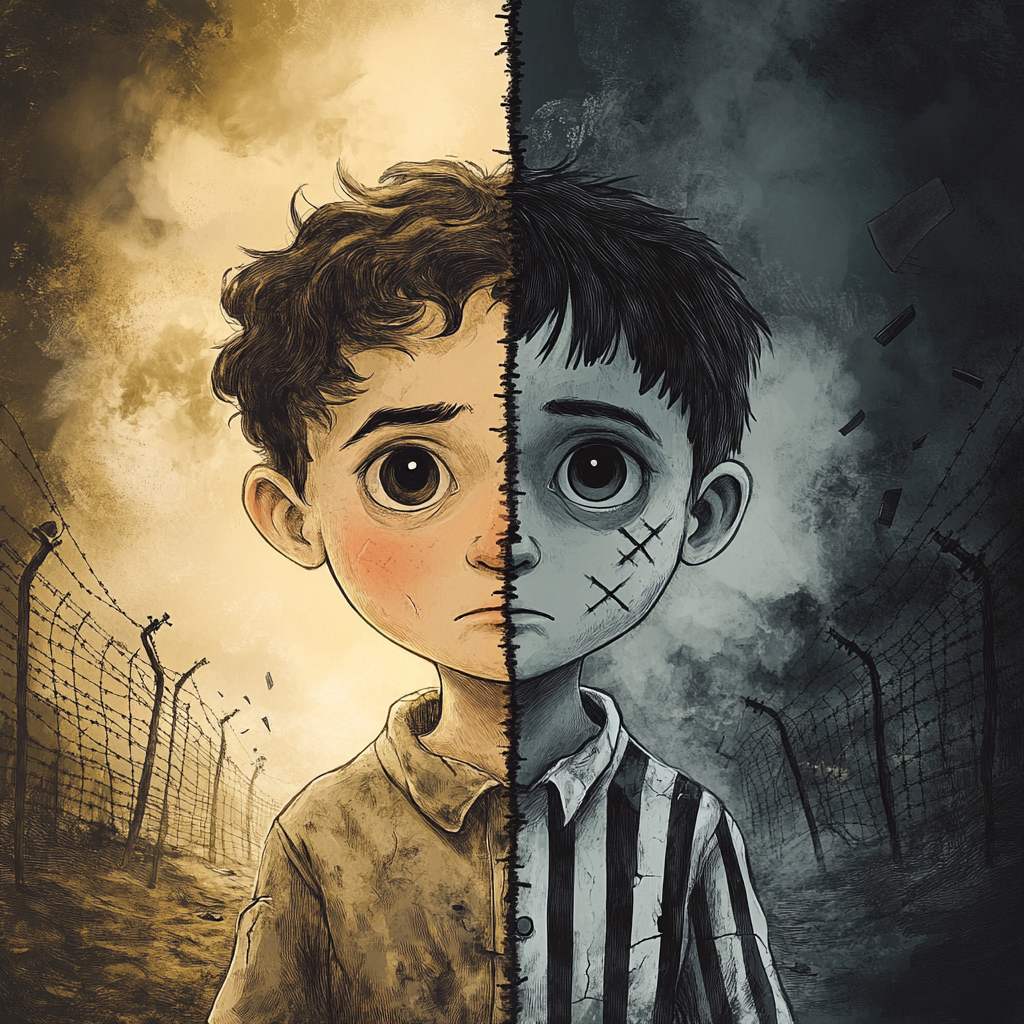Character Development of Elie in Chapter 3 of Night
Introduction to Elie's Transformation
In Chapter 3 of Elie Wiesel's Night, we witness a profound transformation in the character of Elie. This chapter marks a critical point in his journey through the Holocaust, where his experiences begin to shape not only his understanding of the world but also his identity and motivations. The factors influencing his evolution include the harsh realities of life in the concentration camp, the loss of family, and the struggle for survival.
The Horrors of Auschwitz
Upon arrival at Auschwitz, Elie is confronted with the brutal and dehumanizing conditions of the camp. The sight of the crematorium and the oppressive atmosphere instill a deep sense of fear and despair. This moment is pivotal; it represents the loss of innocence and the beginning of Elie's harsh reality. Witnessing the cruelty inflicted upon others, including the separation from his mother and sister, profoundly impacts Elie’s psyche.
Key Factors Influencing Elie's Development
Loss of Family: The separation from family members is a significant factor that shapes Elie's character. The uncertainty of their fate weighs heavily on him, leading to feelings of isolation and anguish.
Fear and Survival Instincts: As Elie navigates the terrifying landscape of the camp, he becomes increasingly aware of the need to survive. This instinct often conflicts with his moral beliefs, causing him to make choices he never thought he would consider.
Witnessing Inhumanity: Elie's exposure to the brutality of the guards and the suffering of fellow inmates alters his perception of humanity. The systematic dehumanization he observes leads him to question faith, God, and the goodness of people.
The Internal Struggle
Throughout Chapter 3, Elie grapples with an internal conflict between his faith and the reality he faces. The experience of seeing children and parents being torn apart fosters a sense of hopelessness. Elie’s struggle becomes evident as he begins to wrestle with the notion of divine justice. The trauma he endures forces him to reconsider his beliefs about God and humanity, which leads to a gradual erosion of his childhood faith.
The Impact on Actions and Motivations
Desire for Survival: In this chapter, Elie's primary motivation shifts towards survival. His experiences compel him to focus on his own safety, prompting him to make choices driven by self-preservation rather than adherence to his previous moral standards.
Loss of Faith: Elie's faith, once a source of strength, begins to wane. The atrocities he witnesses lead him to question the existence of God, which profoundly alters his motivations and outlook on life.
Solidarity with Others: Despite the overwhelming despair, Elie finds moments of solidarity with fellow prisoners. This shared suffering fosters a sense of community, albeit fragile, which becomes a motivating factor in his will to endure the horrors of the camp.
Conclusion
In Chapter 3 of Night, Elie's character development is marked by a significant shift influenced by the traumatic experiences of the Holocaust. The loss of family, the instinct for survival, and the confrontation with inhumanity all contribute to his evolution. As Elie navigates the darkness of Auschwitz, his actions and motivations reflect the complex interplay between despair and resilience, ultimately shaping him into a survivor in a world stripped of hope.
